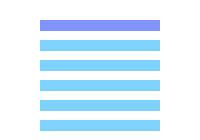28.1.5.6 (28 > 14)

28.1.5.6 (28 > 14) - THE TÂ KWO HEXAGRAM.
- 1. The first line, divided, shows one placing mats of the white mâo grass under things set on the ground. There will be no error.
- 5. The fifth line, undivided, shows a decayed willow producing flowers, or an old wife in possession of her young husband. There will be occasion neither for blame nor for praise.
- 6. The topmost line, divided, shows its subject with extraordinary (boldness) wading through a stream, till the water hides the crown of his head. There will be evil, but no ground for blame.
28.1.5.6 (28 > 14) - Regretting afterwards
One has admitted one's faults despite the absence of those who would have liked to hear it.
Bing DeepL Google Yandex28.1.5.6 (28 > 14) - Regretting afterwards
One has admitted one's faults despite the absence of those who would have liked to hear it.
Bing DeepL Google Yandex28.1.5.6 (28 > 14) - Tá kvoh, le grand excès
Tá kvoh : 1. Grand excès, défaut, manquement ; 2. Traverser, dépasser.
-
1. Ceci est susceptible de deux explications : a. « S’appuyer sur des joncs » est un grand défaut ; ils plient et ne soutiennent pas. b. Pour placer un objet comme natte à offrande, se servir de mao blanc est fautif.
Note. Au lieu de gratter simplement la terre et l’aplanir.
(Le mao blanc représente la pureté, la droiture, kiet tche. Ceci d’après le commentaire représente un excès de précaution. Kwéh hu weï shin (1er sens). - 5. Un vieux saule produisant une fleur, une vieille femme épousant un homme encore jeune, quoique non blâmables, ne peuvent être loués. La fleur du vieux saule ne peut durer, l’époux d’une vieille femme peut s’en dégoûter. (Faits qui passent les règles ordinaires.)
- 6. Traversant un fleuve, y entrer jusqu’au sommet de la tête est chose dangereuse, (mais peut n’être point blâmable, si on le fait pour aider quelqu’un, d’après le Com.) (3e sens). Force défaillante.
28.1.5.6 (28 > 14) - Regretter après-coup
On a reconnu ses fautes en dépit de l'absence de ceux qui auraient voulu l'entendre.
Bing DeepL Google Yandex28.1.5.6 (28 > 14) - Lemondás
- 1. Fejlődni akar a gyengeség miatt.
- 5. Igyekszik javítani mielőtt mások észrevennék a hanyatlást.
- 6. Egyedül akar haladni a környezők gyengesége miatt.
The trigrams
The trigrams are combinations of three yin and yang lines. The three bottom lines of the hexagram form the lower trigram and represent the inner situation. The three top lines form the upper trigram and represent the outer situation.
Upper trigram: The lake The fire


Lower trigram: The wind The sky


The formation: 28
What is already there

28 - THE TÂ KWO HEXAGRAM.
Tâ Kwo suggests to us a beam that is weak. There will be advantage in moving (under its conditions) in any direction whatever ; there will be success.
Bing DeepL Google Yandex28 - Loneliness
One goes on their own if necessary. Stick to the essential.
Bing DeepL Google Yandex28 - Loneliness
One goes on their own if necessary. Stick to the essential.
Bing DeepL Google Yandex28 - Tá kvoh, le grand excès
Tá kvoh : 1. Grand excès, défaut, manquement ; 2. Traverser, dépasser.
Texte
Grandeur défectueuse. Appui faible qui, en s’affermissant en toute manière, peut devenir utile. (Un défaut peut se réparer.)
Symbolisme
Marais couvrant des arbres. Le sage, devant un pouvoir vicieux, se tient seul sans crainte et fuit le monde sans regrets.
Commentaire
Grandeur défectueuse, colonne faible dont le haut et le bas le sont aussi. La force défectueuse au milieu de gens faibles et doux peut, si elle agit en cherchant à satisfaire, s’affermir et prospérer en tout. La grandeur excessive ou défectueuse est une chose funeste.
Note. Nous avons ici une collection d’expressions proverbiales dont plusieurs se rapportent à la forme même du Koua. Celui-ci peut, en effet, à la rigueur, figurer une poutre entamée en haut et en bas, donc très défectueuse.
On voit ici une fois de plus combien ces divisions en six parties sont arbitraires. Le § 3 n’est que la répétition du texte ; les §§ 2 et 5 se confondent.

28.1 (28 > 43) - THE TÂ KWO HEXAGRAM.
The first line, divided, shows one placing mats of the white mâo grass under things set on the ground. There will be no error.
Bing DeepL Google Yandex28.1 (28 > 43) - Reinforcing supports
One wants to improve because of the weakness.
Bing DeepL Google Yandex28.1 (28 > 43) - Strengthening supports
One wants to improve because of the weakness.
Bing DeepL Google Yandex28.1 (28 > 43) - Tá kvoh, le grand excès
Tá kvoh : 1. Grand excès, défaut, manquement ; 2. Traverser, dépasser.
Ceci est susceptible de deux explications : a. « S’appuyer sur des joncs » est un grand défaut ; ils plient et ne soutiennent pas. b. Pour placer un objet comme natte à offrande, se servir de mao blanc est fautif.
Note. Au lieu de gratter simplement la terre et l’aplanir.
(Le mao blanc représente la pureté, la droiture, kiet tche. Ceci d’après le commentaire représente un excès de précaution. Kwéh hu weï shin (1er sens).
28.1 (28 > 43) - Renforcer les soutiens
On veut améliorer à cause de la faiblesse.
Bing DeepL Google Yandex
28.5 (28 > 32) - THE TÂ KWO HEXAGRAM.
The fifth line, undivided, shows a decayed willow producing flowers, or an old wife in possession of her young husband. There will be occasion neither for blame nor for praise.
Bing DeepL Google Yandex28.5 (28 > 32) - Renovating the facade
One hurries to repair before others notice the decline.
Bing DeepL Google Yandex28.5 (28 > 32) - Renovating the facade
One hurries to repair before others notice the decline.
Bing DeepL Google Yandex28.5 (28 > 32) - Tá kvoh, le grand excès
Tá kvoh : 1. Grand excès, défaut, manquement ; 2. Traverser, dépasser.
Un vieux saule produisant une fleur, une vieille femme épousant un homme encore jeune, quoique non blâmables, ne peuvent être loués. La fleur du vieux saule ne peut durer, l’époux d’une vieille femme peut s’en dégoûter. (Faits qui passent les règles ordinaires.)
Bing DeepL Google Yandex28.5 (28 > 32) - Ravaler la façade
On se dépêche de réparer avant que les autres ne constatent le déclin.
Bing DeepL Google Yandex28.5 (28 > 32) - Lemondás
Igyekszik javítani mielőtt mások észrevennék a hanyatlást.
Bing DeepL Google Yandex
28.6 (28 > 44) - THE TÂ KWO HEXAGRAM.
The topmost line, divided, shows its subject with extraordinary (boldness) wading through a stream, till the water hides the crown of his head. There will be evil, but no ground for blame.
Bing DeepL Google Yandex28.6 (28 > 44) - Losing one's bearings
One wants to continue alone because of the weakness of one's entourage.
Bing DeepL Google Yandex28.6 (28 > 44) - Losing one's bearings
One wants to continue alone because of the weakness of one's entourage.
Bing DeepL Google Yandex28.6 (28 > 44) - Tá kvoh, le grand excès
Tá kvoh : 1. Grand excès, défaut, manquement ; 2. Traverser, dépasser.
Traversant un fleuve, y entrer jusqu’au sommet de la tête est chose dangereuse, (mais peut n’être point blâmable, si on le fait pour aider quelqu’un, d’après le Com.) (3e sens). Force défaillante.
Bing DeepL Google Yandex28.6 (28 > 44) - Perdre ses repères
On veut continuer seul à cause de la faiblesse de son entourage.
Bing DeepL Google Yandex28.6 (28 > 44) - Lemondás
Egyedül akar haladni a környezők gyengesége miatt.
Bing DeepL Google YandexIn the making: 14
What is poised to happen

14 - THE TÂ YÛ HEXAGRAM.
Tâ Yû indicates that, (under the circumstances which it implies), there will be great progress and success.
Bing DeepL Google Yandex14 - Meeting the demands
One ensures that the needs are being satisfied if the resources are available.
Bing DeepL Google Yandex14 - Meeting the demands
One ensures that the needs are being satisfied if the resources are available.
Bing DeepL Google Yandex14 - Ta, le grand avoir
Tá : grand, grandeur, grandir, développement.
Texte
Grandeur, commencement développé.
Symbolisme
Le Koua représente le feu au-dessus du ciel. Ainsi l’homme supérieur réprime le mal, répand le bien et se conforme en tout au décret du ciel.
Commentaire
La vraie grandeur, c’est la bonté possédant les honneurs ; le grand gardant le milieu, et petits et grands restant en harmonie. Force et fermeté avec habileté et intelligence forment sa vertu. Il est d’accord avec le ciel, agit à son temps et prospère grandement.
14 - Répondre aux demandes
On fait en sorte que les besoins soient satisfaits si les moyens sont disponibles.
Bing DeepL Google Yandex14 - Az igények kielégítése
A szükségletek ellátása ha az eszközök rendelkezésre állnak.
Bing DeepL Google YandexThe nuclear hexagram: 1.6 (1 > 43)
The nuclear hexagram is the association of the two inner trigrams (lines 2,3,4 and 3,4,5). It represents the root, or the origin of the situation.

1.6 (1 > 43) - THE KHIEN HEXAGRAM
In the sixth (or topmost) line, undivided, (we see its subject as) the dragon exceeding the proper limits. There will be occasion for repentance.
Bing DeepL Google Yandex1.6 (1 > 43) - Forgetting where ones strength comes from
One can blame oneself for not doing anything when others needed to be heard.
Bing DeepL Google Yandex1.6 (1 > 43) - Forgetting where ones strength comes from
One can blame oneself for not doing anything when others needed to be heard.
Bing DeepL Google Yandex1.6 (1 > 43) - K’ien, la créativité
K’ien : principe actif, force vitale universelle.
S’il devient trop fort et dominant, il y aura lieu de le regretter.
Trop de bonne fortune ne peut durer que si l’on n’est prudent et modéré en tout.
Le principe actif doit céder au principe réceptif à certains moments ou bien les êtres ne se reproduiront pas.
1.6 (1 > 43) - Oublier d'où vient sa force
On peut se reprocher de n'avoir rien fait quand les autres avaient besoin d'être entendus.
Bing DeepL Google YandexRuler
The starting situation

28.6 (28 > 44) - THE TÂ KWO HEXAGRAM.
The topmost line, divided, shows its subject with extraordinary (boldness) wading through a stream, till the water hides the crown of his head. There will be evil, but no ground for blame.
Bing DeepL Google Yandex28.6 (28 > 44) - Losing one's bearings
One wants to continue alone because of the weakness of one's entourage.
Bing DeepL Google Yandex28.6 (28 > 44) - Losing one's bearings
One wants to continue alone because of the weakness of one's entourage.
Bing DeepL Google Yandex28.6 (28 > 44) - Tá kvoh, le grand excès
Tá kvoh : 1. Grand excès, défaut, manquement ; 2. Traverser, dépasser.
Traversant un fleuve, y entrer jusqu’au sommet de la tête est chose dangereuse, (mais peut n’être point blâmable, si on le fait pour aider quelqu’un, d’après le Com.) (3e sens). Force défaillante.
Bing DeepL Google Yandex28.6 (28 > 44) - Perdre ses repères
On veut continuer seul à cause de la faiblesse de son entourage.
Bing DeepL Google Yandex28.6 (28 > 44) - Lemondás
Egyedül akar haladni a környezők gyengesége miatt.
Bing DeepL Google YandexCorrection
The direction where the ruler is going to bend

28.1.5 (28 > 34) - THE TÂ KWO HEXAGRAM.
- 1. The first line, divided, shows one placing mats of the white mâo grass under things set on the ground. There will be no error.
- 5. The fifth line, undivided, shows a decayed willow producing flowers, or an old wife in possession of her young husband. There will be occasion neither for blame nor for praise.
28.1.5 (28 > 34) - Continuing alone
One asks the weakest to return home to rest and one takes care of the disorder.
Bing DeepL Google Yandex28.1.5 (28 > 34) - Continuing alone
One asks the weakest to return home to rest and one takes care of the disorder.
Bing DeepL Google Yandex28.1.5 (28 > 34) - Tá kvoh, le grand excès
Tá kvoh : 1. Grand excès, défaut, manquement ; 2. Traverser, dépasser.
-
1. Ceci est susceptible de deux explications : a. « S’appuyer sur des joncs » est un grand défaut ; ils plient et ne soutiennent pas. b. Pour placer un objet comme natte à offrande, se servir de mao blanc est fautif.
Note. Au lieu de gratter simplement la terre et l’aplanir.
(Le mao blanc représente la pureté, la droiture, kiet tche. Ceci d’après le commentaire représente un excès de précaution. Kwéh hu weï shin (1er sens). - 5. Un vieux saule produisant une fleur, une vieille femme épousant un homme encore jeune, quoique non blâmables, ne peuvent être loués. La fleur du vieux saule ne peut durer, l’époux d’une vieille femme peut s’en dégoûter. (Faits qui passent les règles ordinaires.)
28.1.5 (28 > 34) - Continuer seul
On demande aux plus faibles de rentrer chez eux pour se reposer et on s’occupe du désordre.
Bing DeepL Google Yandex28.1.5 (28 > 34) - Lemondás
- 1. Fejlődni akar a gyengeség miatt.
- 5. Igyekszik javítani mielőtt mások észrevennék a hanyatlást.

